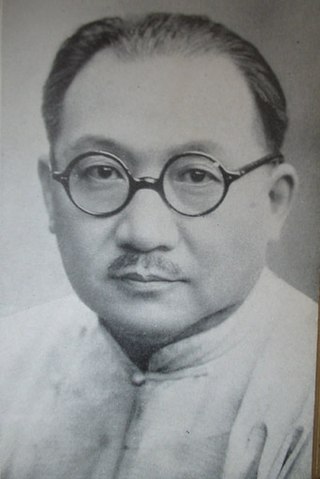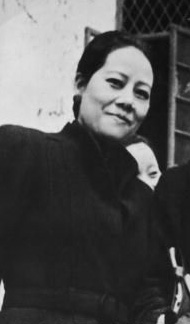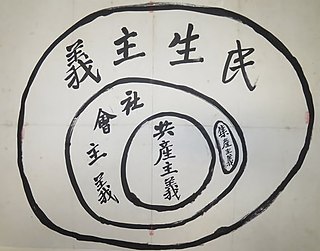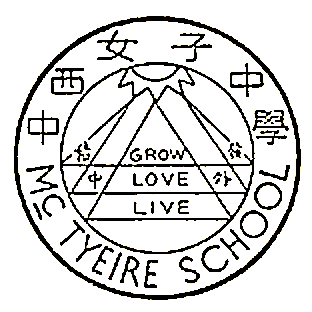Reception
The most extensive review was by Jonathan Spence in the New York Review of Books . He called the book a "lengthy and intensely detailed study," and used the material to make observations about May-ling's life and political significance. In particular Spence argues that one specific period, from late 1942 to the summer of 1943, provided "a kind of turning point in May-ling’s story." For it was in this short period, he explains, that the "complex and contradictory facets of her life became sharply visible, and that her personal predilections and self-regard began to edge out her better judgments concerning her role in the formation of China’s future." Spence wrote that "looking over Pakula’s careful summary of this period, one grows convinced that Mme Chiang was beginning to believe in her own significance and power at a new level..." Spence also asks "to what extent—if any—is it helpful to call Mme Chiang “The Last Empress” as Pakula does?" For she "never really had a coherent vision that we might call “imperial,” and her own access to political power was episodic and never certain." [3]
Jonathan Mirsky reviewing the book in the New York Times remarks that the book is a "doorstop of a biography, so ample that Madame Chiang often disappears." He notes that Pakula has "combed through many English-language archives and secondary materials and conducted some revealing interviews, though she uses no sources in Chinese and offers little evaluation of the ones she does use." He concludes that Pakula’s biography is "often absorbing" and that Madame Chiang "emerges as more than just her husband’s wife; we see a brilliant, scheming, deliberately alluring, brave, corrupt chameleon of a woman..." He does note that inaccuracies were bound to creep in. The writer Lu Xun was not "buried alive" by Chiang Kai-shek, but succumbed to illness in 1936, and that it oversimplifies history to say that “like Chiang” the Chinese Communist Party “did not hesitate to enrich itself through the sale of narcotics.” Both Mao and Chiang used opium revenues, but both conducted effective campaigns against the drug after 1949. [4]
Seth Faison in the Los Angeles Times Book Review noted "a few factual errors and cultural slip-ups", found Pakula "tone-deaf to the subtleties of Chinese culture and history", and thought the title "The Last Empress" was inappropriate (calling Soong instead "the first and most influential first lady ever" of modern China). [5]
In The New Republic , Columbia professor Andrew J. Nathan, reviewing the book along with Jay Taylor's The Generalissimo, [6] observed that Chiang Kai-shek and his wife had been eulogized during the Second Sino-Japanese War but also denounced as "corrupt, venal, and weak." With these two biographies, he continued, the "wheel of historiography never stops turning. Both of the Chiangs have now come in for sympathetic re-evaluations, each convincing in its way." After praising Taylor's research, he declares that although Pakula quotes occasionally from Chinese sources (evidently consulted through the offices of an assistant), her "immensely long book is mostly an assemblage of quotations from contemporary observers and later historians who wrote in English." What "seems to count" is "whether a story is fun to read" But he concludes that the book is "nevertheless hugely effortful and often enjoyable to read." Pakula "handles a complex cast of characters and a turbulent political environment with aplomb," and her account of personal matters probes more deeply than Taylor's. [7]

Chiang Kai-shek was a Chinese statesman, revolutionary, and military commander. He was the head of the Nationalist Kuomintang (KMT) party, General of the National Revolutionary Army, known as Generalissimo, and the leader of the Republic of China (ROC) in mainland China from 1928 until 1949. After being defeated in the Chinese Civil War by the Chinese Communist Party (CCP) in 1949, he led the Republic of China on the island of Taiwan until his death in 1975.

Soong Mei-ling, also known as Madame Chiang Kai-shek or Madame Chiang, was a Chinese political figure who was First Lady of the Republic of China, the wife of President Chiang Kai-shek of the Republic of China. Soong played a prominent role in the politics of the Republic of China and was the sister-in-law of Sun Yat-sen, the founder and the leader of the Republic of China. She was active in the civic life of her country and held many honorary and active positions, including chairwoman of Fu Jen Catholic University. During World War II, she rallied against the Japanese; and in 1943 conducted an eight-month speaking tour of the United States to gain support.

The Soong sisters, Soong Ai-ling, Soong Ching-ling, and Soong Mei-ling, were three sisters from Wenchang city, Hainan island. Raised as Christians and educated in America, the sisters all married powerful men, respectively, H. H. Kung, Sun Yat Sen, and Chiang Kai-shek. Along with their husbands, they became among China's most significant political figures of the early 20th century.

Chiang Ching-kuo was a politician of the Republic of China. The eldest and only biological son of Generalissimo Chiang Kai-shek, he held numerous posts in the government of the Republic of China and ended martial law in 1987. He served as the 3rd premier of the Republic of China between 1972 and 1978 and was president of the Republic of China from 1978 until his death in 1988.

Kung Hsiang-hsi, often known as Dr. H. H. Kung, also known as Dr. Chauncey Kung, was a Chinese banker and politician. He married Soong Ai-ling, the eldest of the three Soong sisters; the other two married President Sun Yat-sen and President Chiang Kai-shek. Together with his brother-in-law, Soong Tse-ven, he was highly influential in determining the economic policies of the Kuomintang-led Nationalist government of the Republic of China in the 1930s and 1940s.

Soong Ai-ling, legally Soong E-ling or Eling Soong, was a Chinese businesswoman, the eldest of the Soong sisters and the wife of H. H. Kung, who was the richest man in the early 20th century Republic of China. The first character of her given name is written as 靄 in some texts. Her Christian name was Nancy.

Song is the pinyin transliteration of the Chinese family name 宋. It is transliterated as Sung in Wade-Giles, and Soong is also a common transliteration. In addition to being a common surname, it is also the name of a Chinese dynasty, the Song dynasty, written with the same character.
The New Life Movement was a government-led civic campaign in the 1930s Republic of China to promote cultural reform and Neo-Confucian social morality and to ultimately unite China under a centralised ideology following the emergence of ideological challenges to the status quo. Chiang Kai-shek as head of the government and the Chinese Nationalist Party launched the initiative on 19 February 1934 as part of an anti-Communist campaign, and soon enlarged the campaign to target the whole nation.

Yao Yecheng, along with Chen Jieru was among the two concubines of Nationalist Chinese leader Chiang Kai-shek during the time when Chiang was also in an arranged marriage to Mao Fumei. In 1921, Chiang married Jennie. In 1927, Chiang divorced Mao Fumei and exiled Jennie—denying any association with the latter. In the busy year of 1927, Chiang also dropped Yao and married Soong Mei-ling.
Last Empress may refer to:
William Henry Donald was an Australian journalist who worked in China from 1903 until World War II. He had considerable direct and indirect influence on events in China, as expressed in a biography.

The historical Kuomintang socialist ideology is a form of socialist thought developed in mainland China during the early Republic of China. The Tongmenghui revolutionary organization led by Sun Yat-sen was the first to promote socialism in China.
The four big families of the Republic of China are four politically influential families in the Republic of China, first in Mainland China, then Taiwan. They were responsible for much of China's management of finance, politics, economy, and law. The four big families begin with the Chinese surnames Chiang, Soong, Kung, and Chen.

The Shilin Official Residence is the former residence of late Republic of China President Chiang Kai-shek located on Zhongshan North Road in Shilin District, Taipei, Taiwan.
Madame Chiang Kai-shek: China's Eternal First Lady is a book written by Laura Tyson Li about Soong Mei-ling, wife of modern China wartime leader Chiang Kai-shek.

McTyeire School was a private girls' school in Shanghai.

Ye Ju (1881–1934), formerly romanized as Yeh Chü, was a Chinese Nationalist general and governor of Guangdong Province.

The July 15 Incident, known by the Chinese Communist Party (CCP) as the July 15 counter-revolutionary coup, and as the Wuhan–Communist split by the Kuomintang (KMT), occurred on 15 July 1927. Following growing strains in the coalition between the KMT government in Wuhan and the CCP, and under pressure from the rival nationalist government led by Chiang Kai-shek in Nanjing, Wuhan leader Wang Jingwei ordered a purge of communists from his government in July 1927.
Jay Taylor was a former U.S. foreign service officer, academic, documentarian, and writer. He was best known for writing The Generalissimo, a biography of Chiang Kai-Shek which won the Lionel Gelber Prize for the best English non-fiction book on Foreign Policy in 2010.

Meiling Palace is a large villa in Nanjing, China, built by the chairman of the Chinese National Government, Chiang Kai-Shek, for his wife, Soong Meiling. It is known formally as the National Government Chairman Residence.














